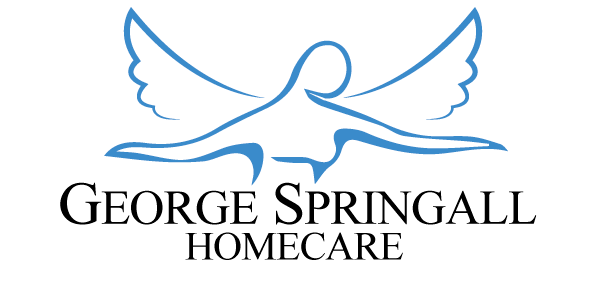
SPINAL INJURIES
Sustaining a spinal injury is life changing and a real challenge. It requires significant physical, emotional and social adjustment by the injured person, their family and their friends.
Returning home from hospital is likely to be accompanied by a mixture of anticipation, uncertainty and anxiety about the future. Making the changes and getting used to the new lifestyle can put real pressure on the injured person and their family and can mean redefining all responsibilities and roles. At George Springall Homecare, we understand these challenges and can provide care and support to help you and your family through the difficult times.
What is a Spinal Cord Injury?
A spinal cord injury (SCI) is damage to the spinal cord that causes changes in its function, either temporary
or permanent. These changes translate into loss of muscle function, sensation, or autonomic function in parts of the body served by the spinal cord below the level of the lesion.
Injuries can occur at any level of the spinal cord and can be classified as complete injury, a total loss of sensation and muscle function, or incomplete, meaning some nervous signals are able to travel past the injured area of the cord. Spinal injury refers to damage of the spinal cord either from a traumatic injury such as an accident, or a non-traumatic injury such as a tumor, blood clot or hemorrhage.
Common symptoms and risks
The spinal cord is responsible for sending messages from the brain to all parts of the body. It also sends
messages from the body to the brain. We are able to perceive pain and move our limbs because of messages sent through the spinal cord.
If the spinal cord sustains an injury, some or all of these impulses may not be able to “get through.” The result is a complete or total loss of sensation and mobility below the injury. A spinal cord injury closer to the neck will typically cause paralysis throughout a larger part of the body than one in the lower back area.
Some symptoms of a spinal cord injury include:
-
problems walking
-
loss of control of the bladder or bowels
-
inability to move the arms or legs
-
feelings of spreading numbness or tingling in the extremities
-
unconsciousness
-
headache
-
pain, pressure, stiffness in the back or neck area
-
signs of shock
-
unnatural positioning of the head
Paralysis and loss of feeling increase the risks of:
-
Pressure sores
-
Hypothermia (lowered body temperature) and hyperthermia (raised body temperature) because the body is unable to sweat
-
Stroke from sudden surges in blood pressure
-
Injury from uncontrolled muscle spasms
Our support and care
George Springall Homecare provides dedicated and experienced staff to help you maintain your quality of life and support you and your family through the difficult times. We create a specialized care plan that focuses on meeting all your needs. We support you set up realistic goals you wish to achieve and we are there to help when ever you need through out your journey to achieving your goals.
This might include:
-
helping with personal care and getting you ready for the day or for a good night sleep
-
catheter care and continence management to maintain your dignity and comfort
-
prompting or administering your medication to manage your symptoms
-
assisting with nutrition and hydration to keep you healthy
-
assisting with routine household chores and shopping so your home life is as you would like it to be
-
emotional or social support to keep you connected to the people who are important to you
-
support with rehabilitation to get back to a normal life and independence
Further information and support is available from the Spinal Injuries Association.
Contact us to discuss a spinal injury care and support service for you.


